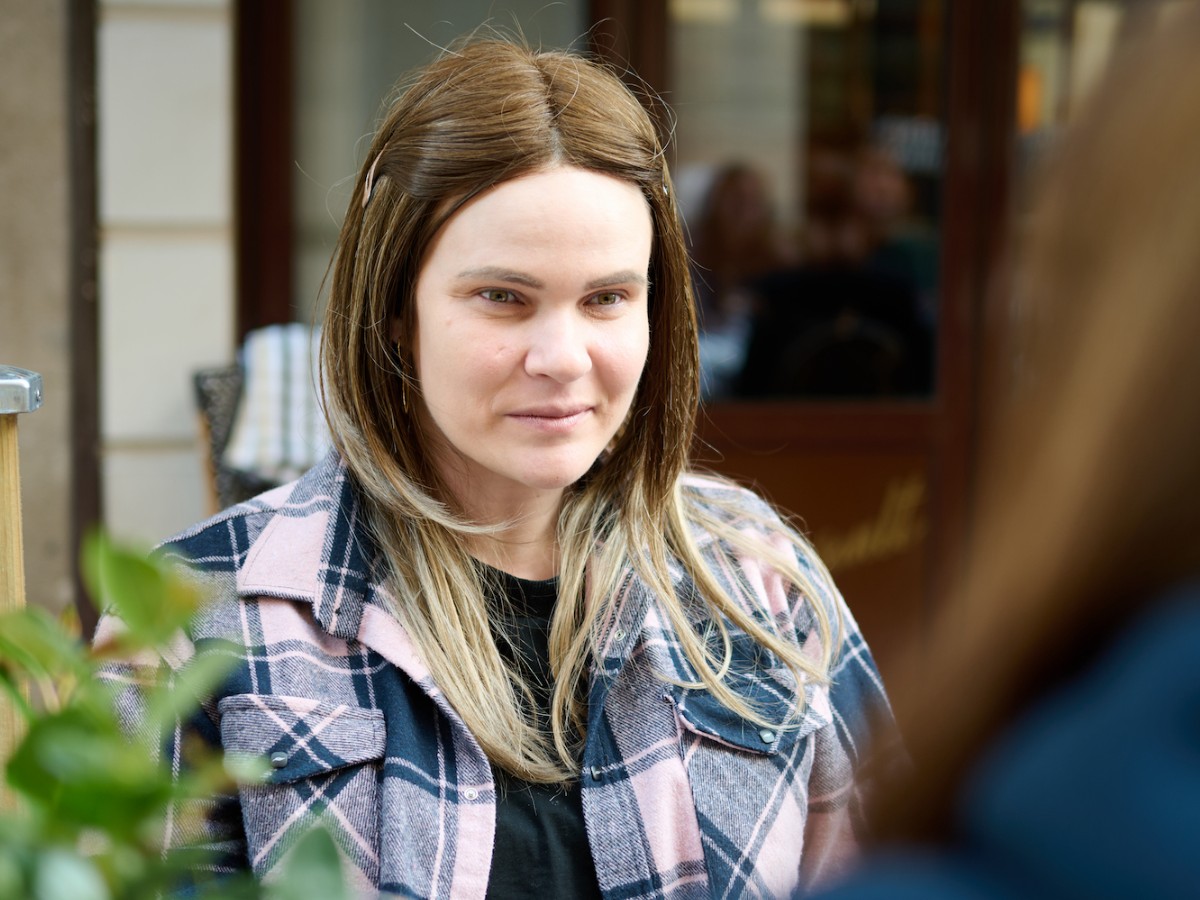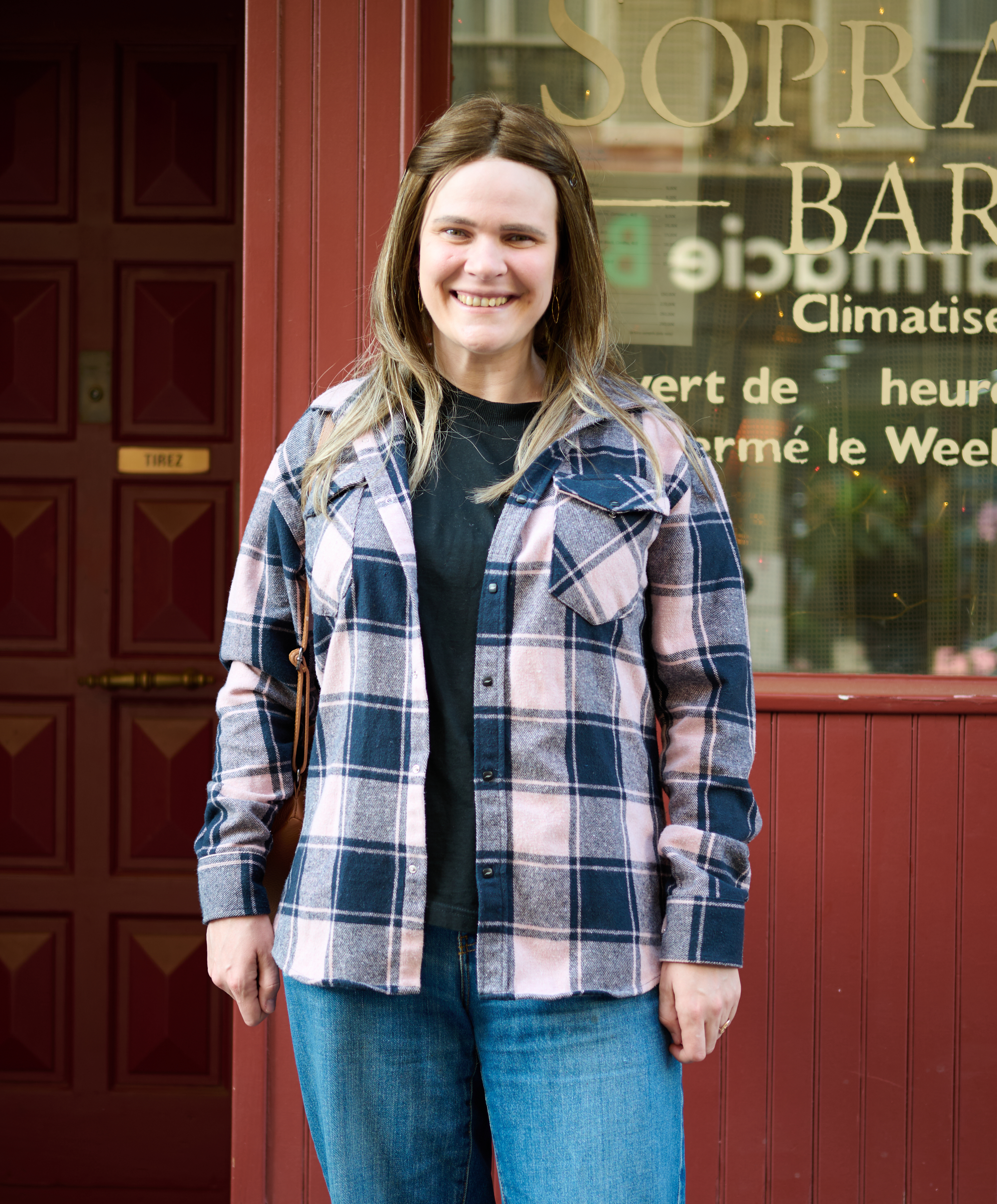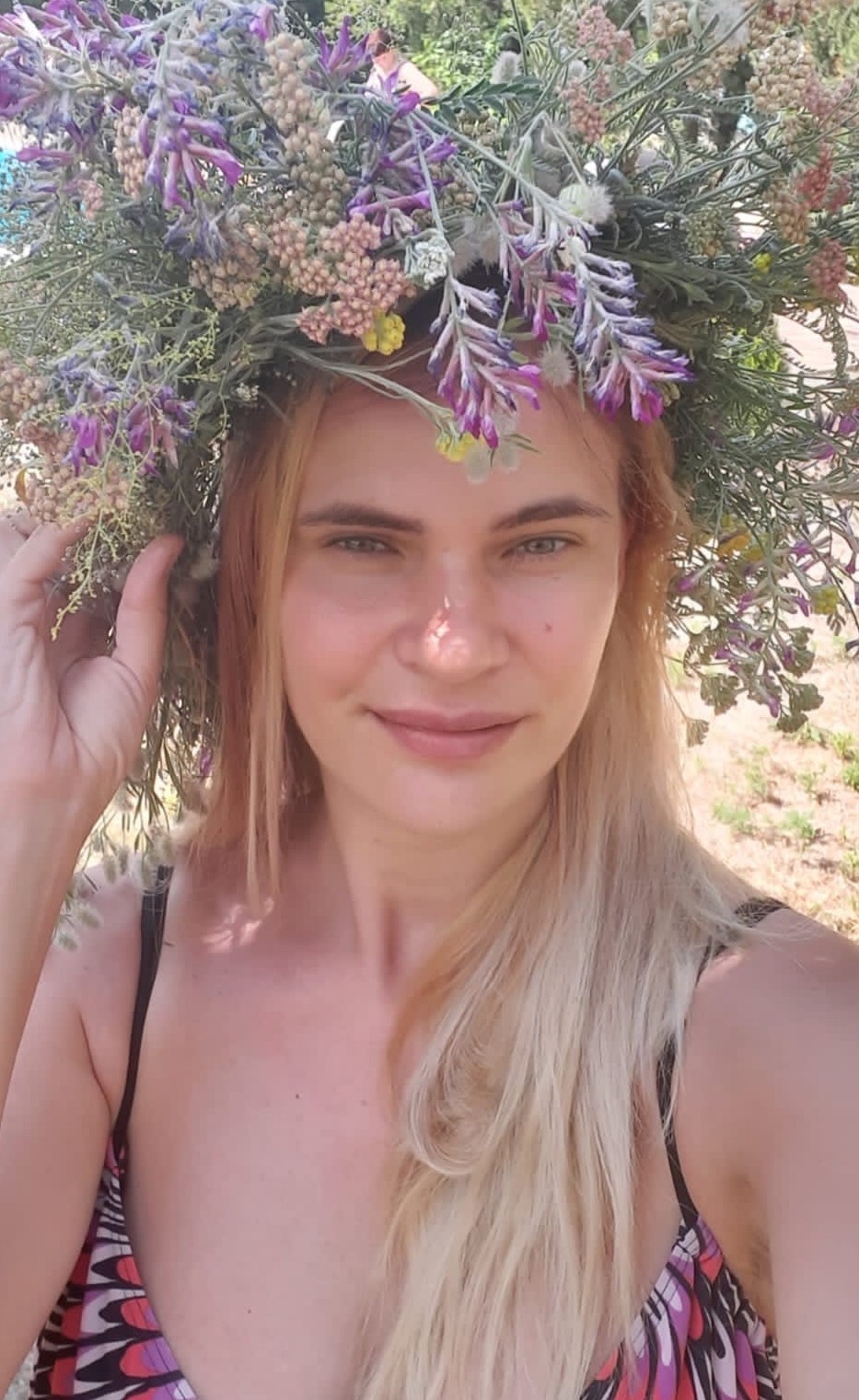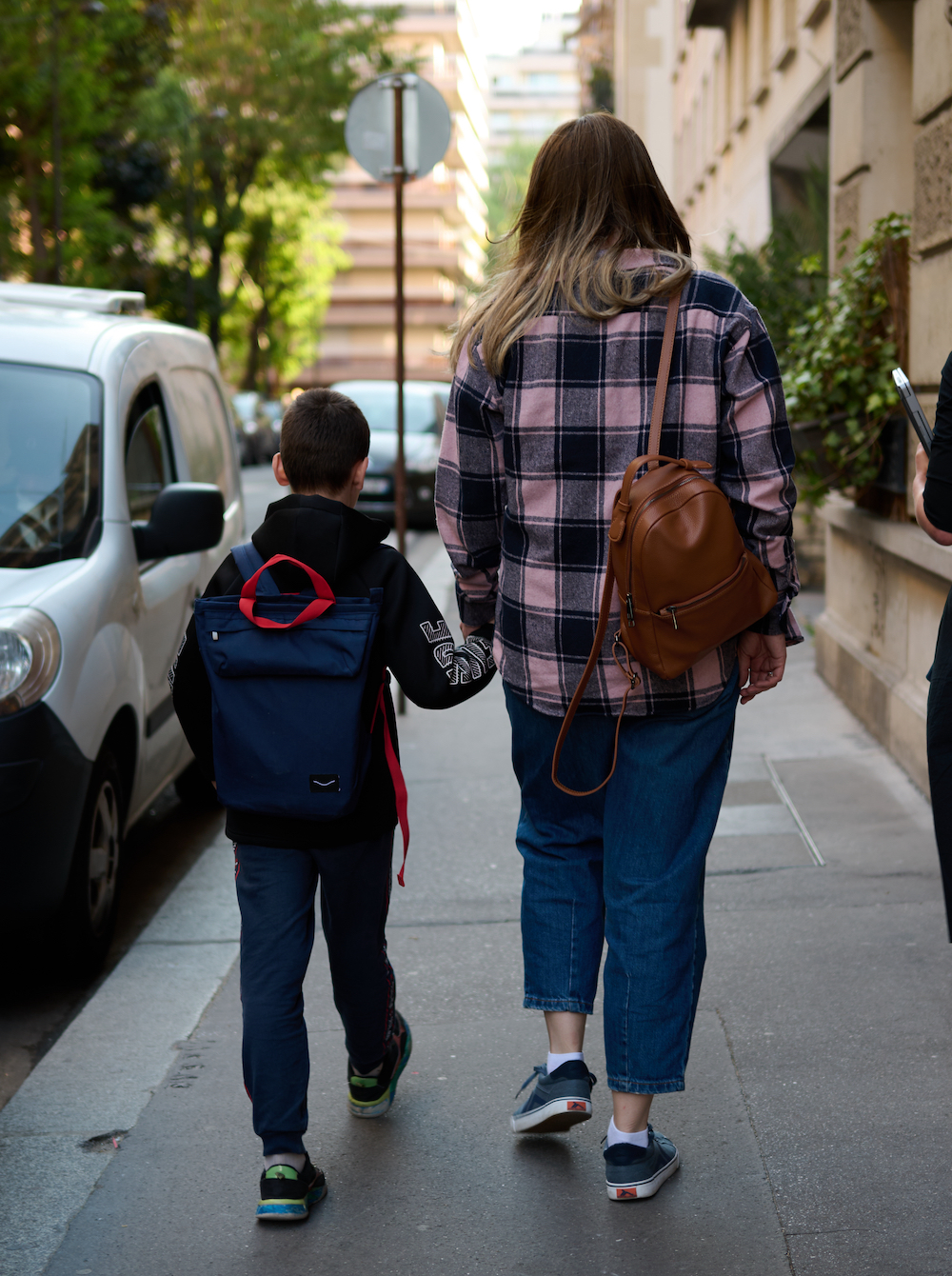Shortly after the beginning of the war in Ukraine in February 2022, Sasha was at home in central Ukraine, with her young son. She wasn’t afraid for herself, but she became increasingly concerned that her son would be traumatized by the sound of missiles exploding in the distance. On that day, Sasha’s husband called and asked them to leave as quickly as possible. She dressed her son, started the car, and began driving to Bulgaria. Shortly afterward, a missile landed near their home, shattering the doors and windows.
In Bulgaria, Sasha and her son settled on the shore of the Black Sea at a summer camp that temporarily housed about 900 Ukrainian refugees. A friend was already staying there, and they got to know other people. Each day was a comfortable routine of walks, meals, and helping her son study. She and her husband tried to talk on the phone every day, even if only for one minute. “It is hard for me to be separated, being far away from him and knowing that he risks his life daily” serving in the army, Sasha says.
A few months later, Sasha began to feel pain in her breast. She’d previously had an operation for mastopathy, a benign change in breast tissue, but what she felt now was in a different location. A quick operation to remove a suspicious mass was followed by a long two-week wait to learn the results. When she finally met with a doctor, he spoke half in Bulgarian, half in Ukrainian, but she was able to understand that she had an aggressive form of breast cancer and would need extensive treatment.
Her first thought was for her son. Because she was far from home, she would have no one to stay with him when she went to the hospital. “I couldn’t have chemotherapy and take care of my child,” she says. “I was scared, I was shocked, lost.”
Sasha’s mother and sister, who had evacuated to Paris, suggested that Sasha travel to stay near them, so they could help. At first she was hesitant: They had already moved once, and she was familiar with the doctors in Bulgaria. But she was inspired by the example of her interpreter in Bulgaria, whom Sasha had met online. The interpreter had been diagnosed with cancer when her child was two years old.
“She saved me, she empowered me to fight, not to give up,” Sasha says, “to do my best for my child and my family that need me.”
Meanwhile, through a Facebook group for Ukrainian refugees in Paris, Sasha’s sister connected with Anne Rohinsky Clement, an oncology marketing director for GE HealthCare who was already hosting Ukrainian families in her home. Working with Sasha’s interpreter and sister and GE HealthCare’s Eastern Europe team, Clement was able to coordinate with the Ukrainian consulates in Paris and Bulgaria to bring Sasha and her son to France. Clement also contacted Gustave Roussy, one of the world’s leading cancer hospitals, which agreed to accept Sasha, then 36, for treatment.
In Paris, she and her son moved into a hotel where her mother and sister were staying. Two days after arriving, she had her first appointment at Gustave Roussy. Almost immediately, she had to go back into the hospital for cancer treatment, including a bilateral mastectomy. Her husband was eventually able to take a few days of leave from the war to come to Paris and support her after the surgery. It was heartbreaking to separate again. After the surgery, Sasha endured four rounds of chemotherapy, which left her in bed for a week at a time.
Sasha is a cheerful, optimistic woman who loves to laugh, but the experience tested her strength. “It was hard, because everything happened at the same time,” she says through tears. “Foreign countries, moving abroad, cancer, war, and separation from my husband.”
Though the treatments were grueling, Sasha had confidence in her doctors. In France she did not have to pay for some of her medical care or for expensive transportation to appointments. “Everything was different,” she says. “I knew I could trust them; I saw that I could rely on them. I felt their empathy and had a perfect level of medical service and care.”
Sasha remembers watching her son one night as he slept. When she was too sick to get out of bed, he liked to bring food and water to comfort her. She went over to hug him, she says, “and promised not to give up, to fight and be there for him as long as I can.”
The chemotherapy was successful. Sasha is now on hormone treatment that is going well. She had reconstructive surgery on her breasts, for which she is grateful. “I could not have had better medical treatment than what I got in France,” she says.
She also expresses gratitude for the community of women who helped her survive: her mother and sister, her interpreter, Clement, and many more. “The compassion and support of women I didn’t know before, the women who helped so much, in small and big things. Caregivers, doctors — all of them were my angels.”
Today Sasha works to recover her health. She dreams of the day when the war ends and they will be reunited in Ukraine with her husband.
“I changed a lot in this time,” she says. “One and a half years and my values are different. Material objects mean nothing to me. My family, my husband, our son, our friends — these were always very important to me, but now I know that they are the most important. Nothing else matters but being together and healthy.”




